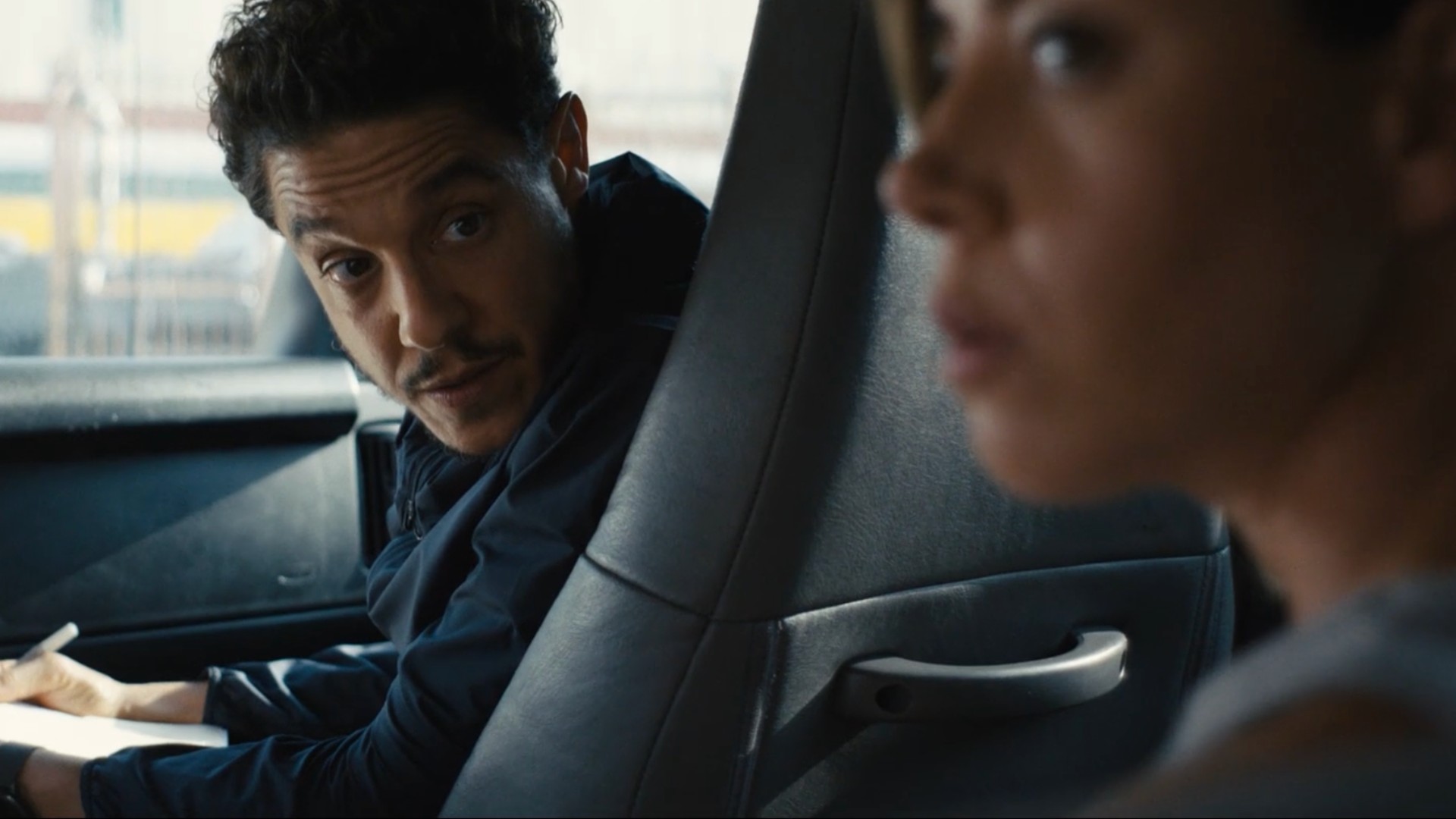Crime thrillers love to insist that crime doesn’t pay, which is pretty rich, since staying on the straight and narrow isn’t exactly lucrative either. While so many of these glorified Old Testament cautionary tales posit dollar-signs-over-the-eyes greed as the motive for leaping into the choppy waters of illegal transgression, anyone just trying to get by in the rigged system of American capitalism might draw a different conclusion. Why play by the rules when the only way to win — or maybe even to survive — is to break them?
That’s the question mulled, early and often, by the title character of Emily the Criminal, an economical gig-economy noir from writer-director John Patton Ford. Emily (Aubrey Plaza, reliably and superbly barbed) is a few years out of college and buried in $75,000 of student debt. Early on, she makes a phone call to the loan office to find out why a recent payment isn’t reflected on her statement. Turns out it went entirely to the interest, not the principal. It’s a scene guaranteed to inspire mass shudders of traumatic recognition from an audience very familiar with the Sisyphean ordeal of paying back predatory lenders.
Aubrey Plaza spikes her signature hostility with a sympathetic weariness.
Emily, a graphic designer by training but not trade, has a couple of felonies on her record — youthful mistakes that brought her time at university to a close and left her largely unhirable. To make ends meet, she works long hours for little pay as an independent contractor at a catering company. Plaza has played more than her share of tough, testy, take-no-shit customers, but here she spikes her signature hostility with a sympathetic weariness: Facing a future dimmed by insurmountable financial obligation, Emily has hardened into a classic Aubrey Plaza antiheroine, with no savings and even fewer fucks left to give.

In fact, so slim are Emily’s occupational prospects that when a coworker tips her off to an opportunity to make a quick, tax-free $200, she barely hesitates to follow the lead. This is her induction into the lawless world of “dummy shopping,” a scam that entails using stolen credit card information to purchase expensive items from stores so they can then be flipped on the street. The operation is run by the cool-headed Youcef (Theo Rossi), who doesn’t so much seduce Emily into a life of crime as gently open the door to it. And can we blame her for stepping through? Youcef’s scheme is basically a shadow version of her “legit” independent contractor work; she has no protections in this field either, but the hours are more flexible and the rates much better.
Ford lends this petty outlaw milieu an appealing neorealism, both in the small-potatoes scale of the crimes being committed and in the observational bob of his handheld camera, which trails Emily through the ins and outs of a strip-mall empire of larceny and identity theft. The film flirts with a Scorsesian procedural interest, but there aren’t many conspiratorial details to obsess over here — the mechanics of Youcef’s organized crime are almost comically straightforward and uncomplicated. They do, however, lend themselves to some crackerjack suspense sequences, like the moment where Emily has to complete the purchase of a sports car and get away in the mere eight minutes before her credit card comes up as stolen, or the harrowing home invasion she invites when agreeing to meet some buyers too close to her apartment.
Emily’s traipse into lawbreaking has the specificity and the mundanity of a story yanked from the headlines.
Outdated flip phones situate Emily the Criminal in an unspecified recent past — just one element that gives the film the misleading vibe of true crime, when in fact it’s an entirely fictional concoction. Seriously, it’s almost hard to believe all of this isn’t adapted from a magazine article. Emily’s traipse into lawbreaking has the specificity and the mundanity of a story yanked from the headlines. It also, unfortunately, slides in its second half into the kind of generically “urgent” melodrama screenwriters will often impose on interesting real-world events that don’t require it. Emily’s eventual romance with Youcef and the story’s ultimate tilt into backstabbing and violence feel artificial in comparison to Ford’s more convincing, low-to-the-ground depiction of someone pulled inexorably into a rather unglamorous criminal enterprise.
Veneer of grittiness aside, Emily the Criminal is ultimately something of a fantasy, shrewdly targeted at a postgraduate workforce crushed by debt, a bleak job market, and the sucker bet of tethering your future to employers who see you as nothing more than cheap, expendable labor. It is, in other words, a caper for our age of late-stage capitalism, free of any moralistic hand-wringing about the true cost of crime. And in Plaza, it finds the ideal microphone for the outrage it’s channeling. Her furious outbursts during a pair of bookending job interviews are more than relatable. They’re basically the lament of a generation choking on false promises, and ready for the desperate measures called for by our desperate times.
Emily the Criminal is now playing in select theaters. For more of A.A. Dowd’s writing, please visit his Authory page.
Editors’ Recommendations
Credit: Source link


Comments are closed.